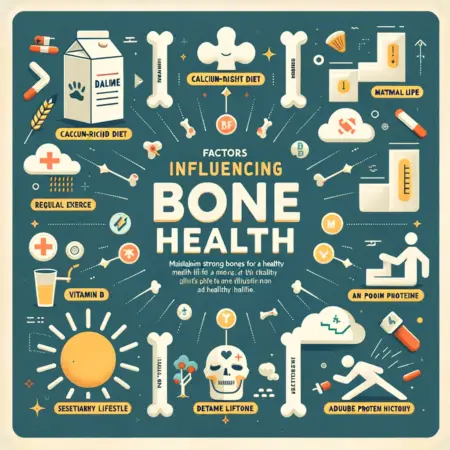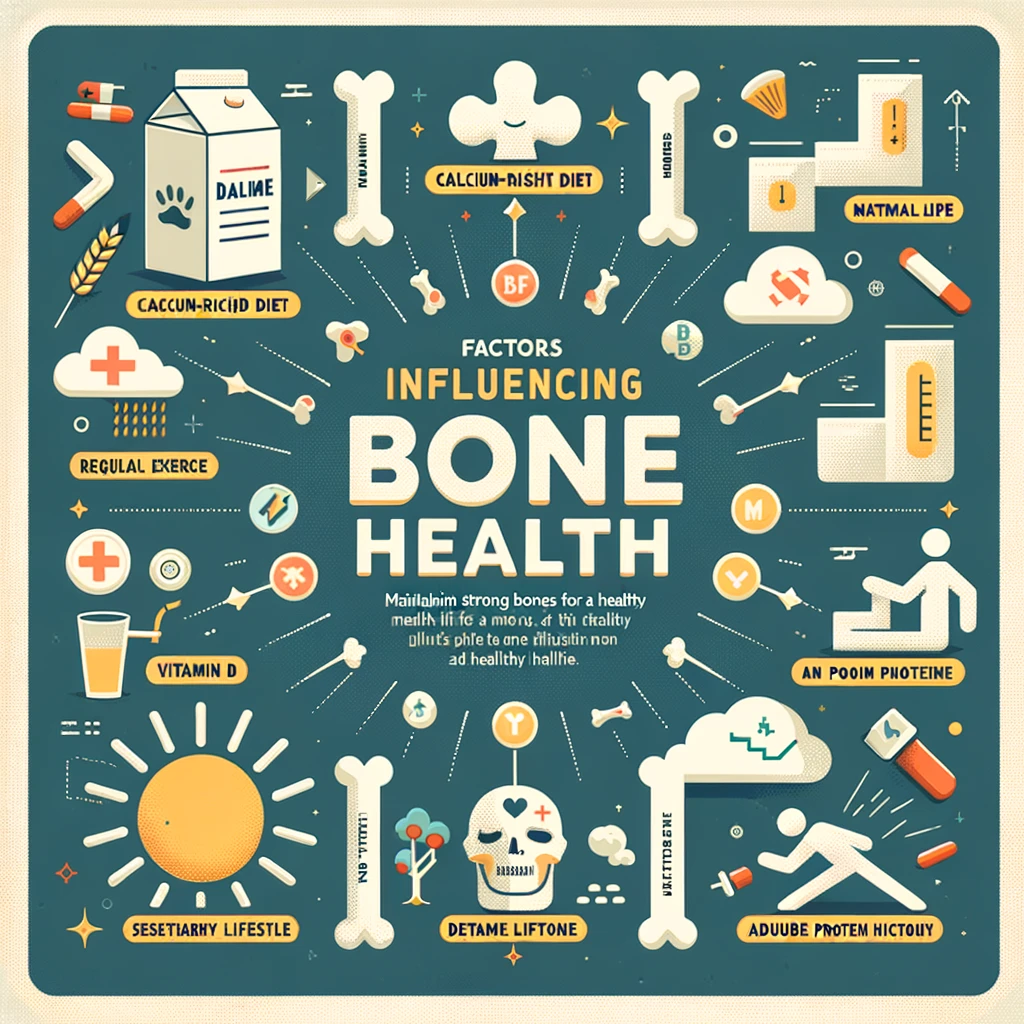Discover the key factors that influence bone health and learn how to promote strong and healthy bones through proper nutrition, exercise, and lifestyle choices. You can both eat and train for solid bones that can take a beating. Follow these simple and natural tips.
For good health, many conditions are important – this is also the case for good bone health. The skeleton is the framework that holds our body up. The joints bind the bones together and the muscles make it possible to create movement and control the skeleton.
What Factors Influence Bone Health?

– The human body has 206 individual bones.
– The skeleton makes up 10-20% of a normal-weight person’s body weight.
– The bones have a specific gravity of more than 3 grams per milliliter due to their high content of minerals – there is particularly a lot of calcium and phosphate.
The skeleton also has other functions such as protecting our most important organs such as the brain, heart, lungs and the nerve fibers in the spinal cord which are protected inside the spinal column. Inside the large bones (red bone marrow) red and white blood cells as well as platelets are also produced.
There are four environmental factors in particular that are important for good bone health:
- Diet rich in vitamin D
In a mixed Norwegian diet, calcium and phosphate are usually sufficient, but there is less than desirable vitamin D, which is absolutely necessary for the minerals to be absorbed from the intestine and distributed in a favorable way in bone tissue. That is why it is very important that you get 10 micrograms of vitamin D per day (20 micrograms of vitamin D per day if you are over 75).
Found in: Vitamin D is only found in a few foods, such as all types of fatty fish and cod liver oil (5 milliliters/day provides about 10 micrograms of vitamin D).
In addition, sun exposure in sensible doses is very important to have a good vitamin D status.
- Physical activity every day
In addition to the diet, it is important that the bones are stressed regularly in the form of physical activity. The official recommendations are at least 30 minutes of physical activity daily, but this is on the narrowest of levels. For optimal bone health, you probably need at least 60 minutes of physical activity on average per day. There are some studies that indicate that weight training is particularly beneficial for preventing bone fractures, but all types of activity that pull and press on the bones have a beneficial effect.
STRENGTH TRAINING: You cannot change your genes, which is of great concern for bee health, but you can prevent loss of bone mass by getting enough calcium, vitamin D and engaging in regular weight-bearing activity, such as strength training or running.
- Blunt the smoke
There are many studies that show that smokers break their bones more easily than non-smokers, and this may be due to the fact that smokers have a slightly lower vitamin D level than others, and that their ability to build new bone tissue is reduced compared to non-smokers .
- Healthy weight
A very low amount of adipose tissue is also a factor that matters for bone quality. If you are very thin with a low fat percentage, you get weaker bone tissue and a large increase in the risk of breaking bones. This applies particularly to young women in endurance sports and to old thin people with little appetite.
In conclusion, numerous factors influence bone health, including nutrition, physical activity, hormonal factors, age, genetics, lifestyle habits, medical conditions, and medications. By understanding these factors and incorporating healthy habits into our daily lives, we can promote and maintain strong and healthy bones, ensuring a better quality of life for years to come.
